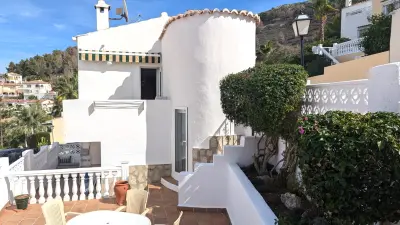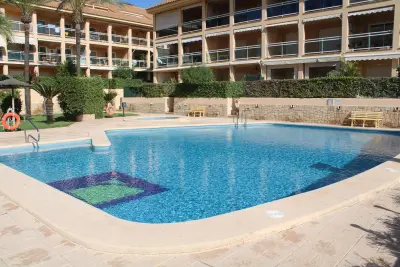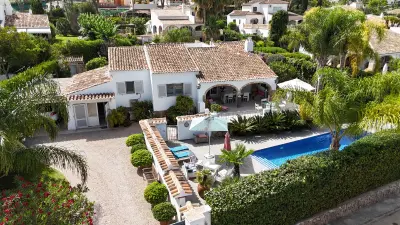Spanish Healthcare - How to register
The Spanish healthcare system is ranked among the best in the world. Learn how to sign up for free state healthcare in Spain or apply for health insurance as an expat.
If you’re living and working in Spain, you’ll likely have access to free state Spanish healthcare, paid partly by social security payments, which will be deducted from your wage. Sanitas, part of Bupa Global, explains how to obtain complete health coverage with affordable private health insurance in Spain.
Public and private healthcare in Spain
Spain’s healthcare system is regularly rated among the world’s best, guaranteeing universal coverage and no upfront expenditure from patients apart from paying a proportion of prescription charges. Spain spends about 10 percent of its GDP on healthcare, and is ranked sixth in the EU for the number of doctors with around four doctors per 1,000 people. A 2015 World Health Organisation survey showed that Spanish women outlive all other nationalities (living to 85.5 years) apart from the Japanese — so they must be doing something right.
Spanish healthcare consists of both private and public healthcare, with some hospitals (hospitales) and healthcare centres (centros de salud) offering both private (privado) and state healthcare services (asistencia sanitaria pública). You don’t need to have private health insurance to get medical treatment in Spain, but it usually allows you to get faster treatment for non-emergency procedures, diagnosis tests, and specialist consultancies.
Around 90 percent of Spaniards use the public healthcare system, with some 19 percent signed up to some sort of private healthcare scheme in order to combine the best of both systems. In total, 98.7 percent of the population are insured for Spanish healthcare. However, healthcare expenditure has been decreasing in recent years, and waiting times can be long. For example, the waiting time for operations in Spain has increased over the past few years, averaging 89 days in 2016 (a 13-day increase since 2012). In May 2016, there were nearly 550,000 patients waiting for a non-urgent procedure.
Meanwhile, the number of people in Spain with private health insurance has grown in the last five years to 500,000 people, a 5 percent increase, thanks to innovative and customised services.
The state Spanish healthcare system
State healthcare is free of charge to anyone living and working in Spain, although in some of the Spanish islands you may have to travel to find a state healthcare provider. You can find your nearest local health centre or public hospital in Spain here.
As an expat, you are entitled to free state healthcare if you are:
- resident in Spain and work in employment or self-employment and pay social security contributions,
- resident in Spain and receiving certain state benefits,
- resident in Spain and recently divorced or separated from a partner registered with social security,
- a child resident in Spain,
- a pregnant woman who is resident in Spain,
- under 26 and studying in Spain,
- a state pensioner, or
- staying temporarily in Spain and have an EHIC card (see below).
If you don’t have the right to state healthcare, you have to organise private health cover. If you have been registered on the padrón at your town hall for a year, the Spanish government has a state insurance scheme (convenio especial) with a basic monthly fee. This is administered by the authorities in each autonomous region.
The state system is funded by social security contributions, with each region of Spain taking individual responsibility for a health budget allocated by central government.
As the Spanish healthcare system is decentralised, you will need to check the conditions in your own area for using healthcare services. There’s a directory of the regional health authorities within the different regions of Spain on the Spanish Health Ministry’s website (now English and 6 other languages).
Private healthcare in Spain
If you are not paying social security contributions, then you can choose to take out private health insurance or pay the full amount of any medical costs.
How to register for Spain’s public healthcare
First of all, you must register with social security (Dirección General de la Tesorería General de la Seguridad Social or TGSS), which has offices throughout Spain, to get a social security number. You’ll need to show your passport or ID card, residency certificate and a completed application form. You’ll also need to have registered your details (address etc.) at your town hall. Click here www.ajxabia.com
Once you have registered with the TGSS you’ll be given a social security number and a certificate stating that you’re entitled to medical help. You then take the certificate, passport and NIE number (foreigner’s identity number) along to your local health centre. You can then register with a doctor and apply for a health card (tarjeta sanitaria individual or TSI). This will be sent to you in the post, or you will be asked to pick it up personally. The health centre will also be able to arrange for you to get a Sistema de Informacion Poblacional or SIP card. You’ll need to show it every time you visit a clinic, hospital or collect a prescription from a pharmacy.
European Health Insurance Card in Spain (EHIC)
If you have an EHIC issued by an EU-member state and you are in Spain on a holiday or other temporary visit – that is, you are not yet a resident in Spain – you can use your EHIC to access state healthcare in Spain. You can also use it if you are studying in Spain as part of a course based in your home country.
You can use the EHIC to get any medically necessary treatment (as determined by the doctor you see) through the state system either at a reduced cost or free. This could be routine or specialist treatment – for a new or an ongoing condition – which cannot wait until you return home. It does not give access to private healthcare.
You cannot use the EHIC if you are coming to Spain specifically to get medical treatment or to give birth. If this is the case, you should seek advice from the health authorities in your home country before coming to Spain.
It is advisable not to totally rely on the EHIC and to take out medical insurance. There have been cases where an EHIC has been refused in some parts of Spain. This is being investigated by the European Commission but if it happens to you, try to get proof that you presented it at the time as it may persuade an insurer to waive their excess. Read more on how to get a European Health Insurance Card.
Bi-lateral health agreements
Spain has bi-lateral agreements with some countries, such as Andorra, Brazil, Chile, Ecuador and Peru, that allow citizens from these countries visiting Spain for short periods of time to obtain free emergency medical treatment. Everyone else needs to take out private health insurance in Spain. See bilateral agreements here.
Going to the doctor in Spain
In Spain, you get primary health care through a health centre (centro de salud or centro de asistencia primaria or CAP), or a general doctor (médico de cabecera). Before you can see a doctor in Spain, you need to register.
Check on Google where your local health centre is. The health centre will probably have around six doctors and you may not see the same one each time you visit, although in some centres you can book to see the same doctor, particularly if you are in ongoing treatment. Find a Spanish doctor with his or her own practice through the phone book or by personal recommendation.
Doctors in Spain may offer both private and state healthcare; make sure you are clear which type of healthcare you want. There may be separate surgery times for private and state patients. You should be given a leaflet called Carta de Derechos y Deberes (Charter of Rights and Obligations) that sets out your rights as a patient. You usually make an appointment to see a doctor at a health centre although doctors with individual practice may offer a first-come-first-served basis. You have the right to be accompanied by a friend or relative during consultations. You can change doctors easily, just by re-registering.
Going to see a specialist
If you want to be seen by a medical specialist in Spain, you’ll need to be referred by a family doctor. Waiting times can be long for highly prescribed analyses or certain specialist services. If you have private health insurance, you’ll be able to see a specialist much faster than going through the public system.
Visiting the dentist in Spain
Dental care in Spain is not covered by the Spanish healthcare system unless in an emergency. You must either pay for dental treatment unless you have private health insurance. Find a dentist by looking in the phone book or by personal recommendation. A good place to ask is on Javea Connect facebook page – or visit their website javeaconnect.co.uk
Pharmacies in Spain
You can take a prescription to any pharmacy (farmacia). Look for a shop with a large green cross sign outside.
Pharmacy opening hours
Pharmacies are usually open Monday to Friday from 9.30am to 2pm and 5pm to 9.30pm, and Saturdays 9.30am to 2pm. There’s usually a notice on the pharmacy window or door with details of the nearest 24-hour pharmacy (farmacia de guardia) – or you can find a list of pharmacies online.
Prescription charges in Spain
You have to pay a percentage of the cost of prescription medicines, and the cost is non-refundable. How much you pay depends on your income and whether you are of working age or a state pensioner. For example, if you are of working age and your annual income is less than EUR 18,000 you have to pay 40 percent of the cost of the medication. If your income is between EUR 18,000 and 100,000 you pay 50 percent, and if it’s over EUR 100,000 then you pay 60 percent. State pensioners pay 10 percent unless their income is over EUR 100,000, in which case they also pay 60 percent.
Registered pharmacists can also provide health consultations and guidance on health matters.
Hospitals in Spain
In an emergency you can go straight to a hospital A&E or ER (Urgencias). Find a List of hospitals in Spain.
If you want to get any other type of hospital treatment, you’ll need a referral from a doctor. There are public and private hospitals in Spain. Only the public hospitals provide free treatment. Some hospitals offer both private (privado) and state healthcare services (asistencia sanitaria pública), so make sure the staff knows which service you want.
When you go to a Spanish hospital, you’ll need to show your social security card or proof of private insurance.
If you are discharged from a hospital in Spain and need medication, you must take the hospital medical report to a pharmacy for the prescription to be fulfilled, as hospital doctors don’t issue prescriptions.
In an emergency
In a serious, life-threatening emergency, call the pan-European number 112 free of charge from any mobile/cell phone or landline. The Spanish word for A&E or ER is urgencias.
Other emergency numbers include:
- Emergency Service Numbers
- Pan-European emergency number – 112
- Ambulance Service (Ambulancia) – 061
- National Police (Policía Nacional) – 091
- Local Police (Policía Municipal) – 092vil Guard (Guardia Civil) – 062
- Fire Service (Bomberos) – 080
- Medical emergencies on the Costa Blanca – 085
Calls from SOS phones on main roads and motorways are free. Other emergency calls are charged at a reduced rate.
Useful Spanish phrases in an emergency
- Accident: Accidente
- Emergency: Emergencia/Urgencia
- I need an ambulance: Necesito una ambulancia
- I need a doctor: Necesito un medico
- Heart attack: Ataque cardiaco/Infarto
- Stroke: El accidente vascular cerebral
- I need a dentist: Necesito un dentista
Information from Sanitas











